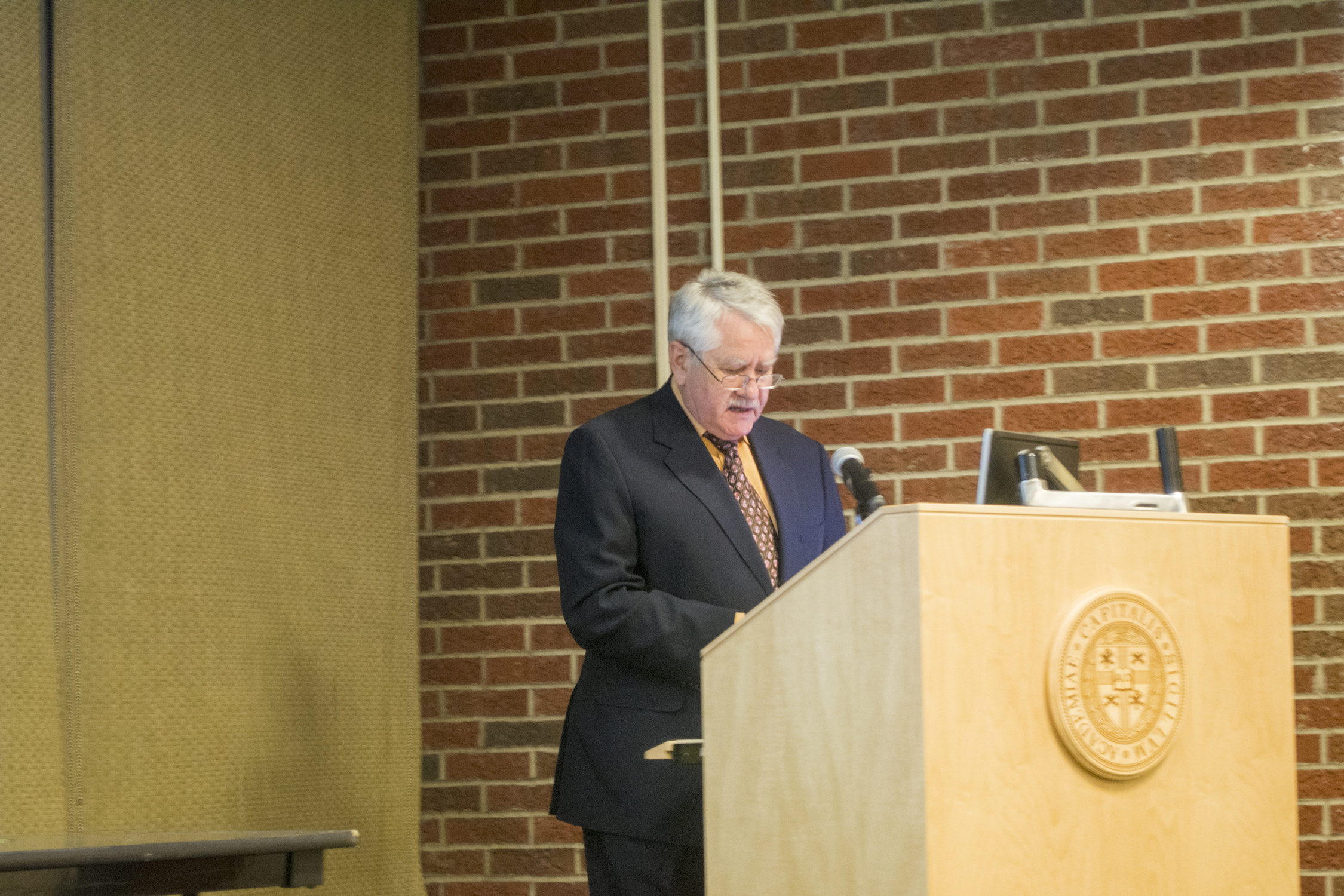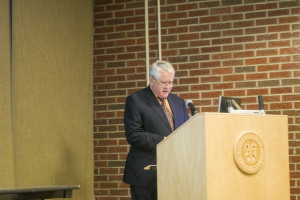On Monday Nov. 16, the Young Americans for Liberty invited Larry Schweikart, a history professor from the University of Dayton, to speak on the “Arsenal of Democracy.”
The open lecture focused on the involvement of the federal government in production during the World War II era and compared many historical facts to pop culture.
Schweikart spoke on several topics, ranging from those who developed machinery for World War II to those who created the pop culture soundtrack of the war. He started the lecture by establishing the grounds on which the United States was able to reinvent and modernize current inventions. He credited this to Alexander Hamilton.
“Hamilton was a federalist who believed in maintaining a strong national defense, particularly against England. To that end, [in] his report on manufactures in 1791, he made a case for protective tariffs. [Those included] two industries in particular, iron and textiles. And these were essential for producing guns, bayonettes, cannons, as well as uniforms and sails.”
Schweikart also spoke about how the U.S. decided to help win wars during a time of unheard policies, such as the military’s use of airplanes after World War I.
“The U.S. settled on a very interesting approach [and] one [that was] largely unseen in other countries. Rather than having the government pay for the factories that would make American war planes, [it] used the constitutionally delegated authority of the mail delivery to authorize mail contracts to airlines. The airlines in turn would purchase the airplanes from manufactures who would have a kind of indirect subsidy.”
The lecture included other information, such as how during World War II, companies would announce job requests by placing ads in inner-city newspapers and magazines; how first largescale black migration to California occurred when a boat designer was asked to produce ships for the U.S. Navy; and how the U.S. mass produced enough airplanes, ships, and tanks that the U.S. able to give the excess to the Soviet Union.
An important piece of information that Schweikart highlighted was that the U.S. was able to survive World War II and the Cold War through the advancement of war weapons, inventions, policies, and surprisingly, rock ‘n’ roll.
“There is another weapon that I would discuss that required almost no government money … and that’s rock music … We looked at the impact of rock ‘n’ roll music in helping to bring down communism,” Schweikart said.
Before Schweikart became a professor, he was a rock music drummer and toured with bands such as Steppenwolf and Vanilla Fudge. Schweikart credits his rock music profession to learning how to impact countries other than our own. Schweikart also made two movies about the impact rock music on war.
His first movie, “Rockin’ the Wall,” was released in 2010 and explains how artists such as Vanilla Fudge and Billy Joel stopped the spread of communism and ended the Cold War. His second movie, “Rockin’ the Wall 2: Other Wall to Fall,” is based on the current issue of terrorism in western civilizations.


